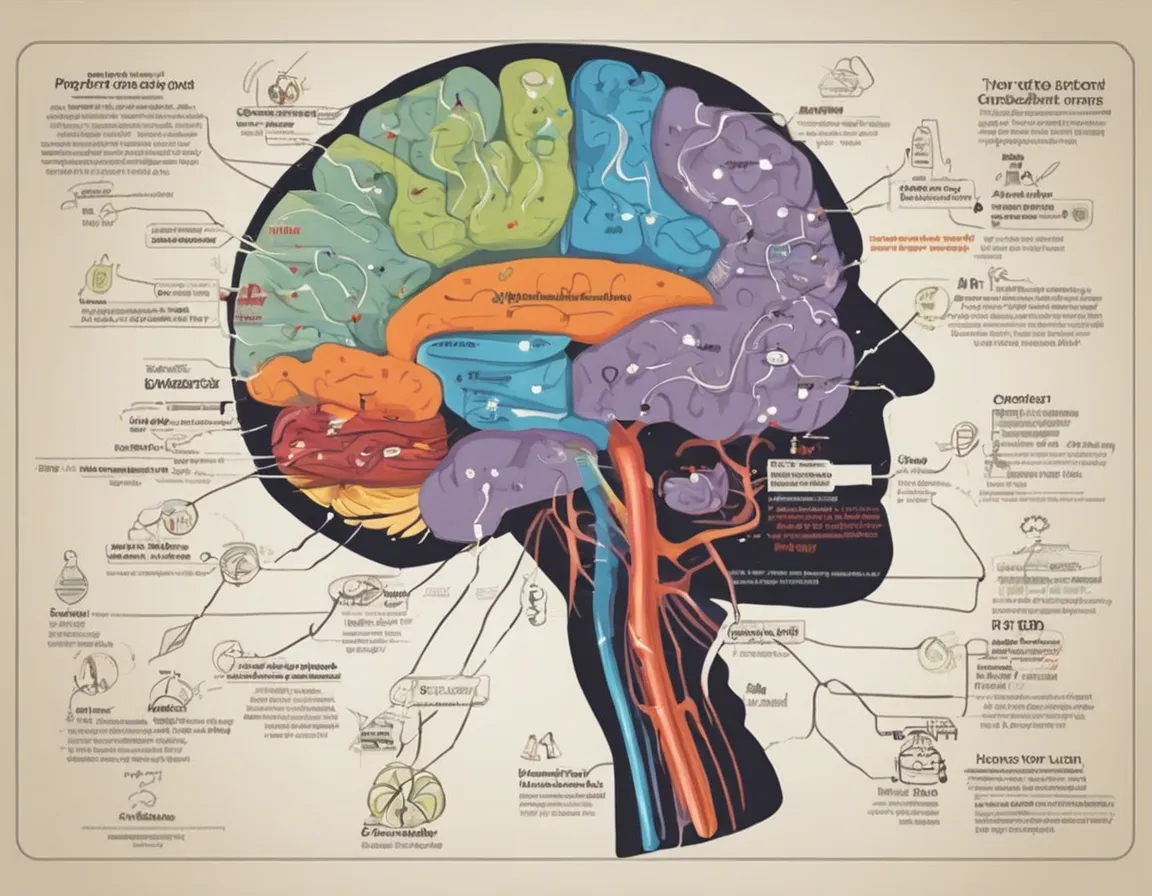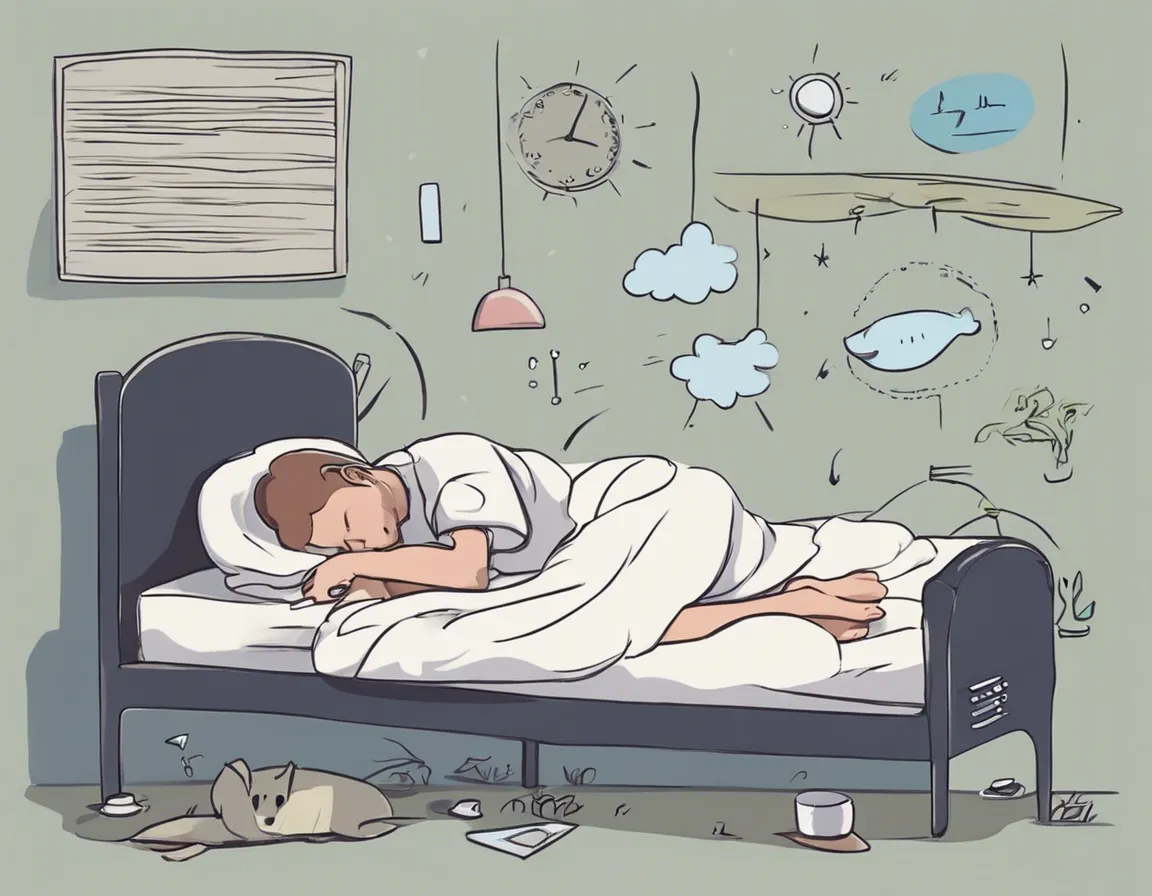
Struggling to get a good night’s sleep? Here are 15 easy tips you can try tonight to improve your sleep quality and wake up feeling refreshed.
Stick to a Schedule

Getting up and going to bed at the same time every day can help your body get into a routine. This makes it easier to fall asleep and wake up naturally.
A consistent sleep schedule can improve your overall health. It helps regulate your internal clock, which can boost your mood and energy levels.
Avoiding drastic changes to your sleep schedule on weekends helps maintain the routine. This can make weekdays easier to handle and improve your sleep quality.
Create a Bedtime Ritual

Doing the same things every night before bed helps your body know it’s time to relax. Try reading a book or taking a warm bath to start winding down.
A consistent bedtime routine can improve your sleep quality over time. Activities like listening to calming music or practicing deep breathing can make it easier to fall asleep.
Avoid screens before bed as the light can interfere with your sleep. Instead, you can write in a journal or do some gentle stretches to help ease into sleep.
Limit Screen Time

Using screens before bed can mess with your sleep. The blue light from phones, tablets, and computers tricks your brain into thinking it’s still daytime, making it harder to fall asleep.
To get a better night’s rest, try shutting down all screens at least an hour before you go to bed. This gives your mind a chance to unwind and get ready for sleep.
Instead of scrolling through your phone, consider reading a book or listening to calming music before bed. These activities can help you relax and prepare for a restful night.
Watch Your Diet

Eating heavy meals before bed can make it tough to fall asleep and might keep you awake. Try to have your dinner at least a few hours before you plan to go to sleep to help your body digest properly.
Caffeine can stay in your system for hours, making it harder to get a good night’s sleep. Avoid coffee, tea, and other caffeinated drinks in the late afternoon and evening to make sure you can fall asleep more easily.
Alcohol might help you fall asleep faster, but it can disrupt your sleep cycle and make you wake up during the night. Stick to moderate or no alcohol in the evenings to improve your overall sleep quality.
Get Comfortable

Make sure your bedroom is cool, dark, and quiet. These conditions help signal to your body that it’s time to sleep. Using blackout curtains and white noise machines can assist in creating this ideal environment.
Investing in a good mattress and pillows can drastically improve your sleep quality. A comfortable bed supports your body better, reducing the chances of waking up with aches and pains. Test different options to find what suits you best.
Maintaining a clutter-free bedroom can also contribute to a more restful sleep. A tidy space can help reduce stress and create a calming atmosphere. Consider organizing your room to make it a relaxing haven.
Exercise Regularly

Regular exercise helps you fall asleep faster and enjoy deeper sleep. It’s best to avoid intense workouts close to bedtime, as they can make it harder to wind down.
Engaging in physical activity during the day can reduce stress and anxiety, which are common causes of sleep problems. Even a short walk or light stretching can make a difference.
Exercise boosts your overall health and wellness, which can positively impact your sleep patterns. Consistency is key, so try to include some form of physical activity in your daily routine.
Manage Stress

Stress and worry can keep you awake. Try relaxation methods like meditation, deep breaths, or light stretching.
Meditation helps calm your mind, making it easier to fall asleep. Just a few minutes can make a big difference.
Gentle stretching before bed can relax your muscles and reduce tension, helping you sleep better and feel more rested.
Limit Naps

While a short nap can boost your energy, taking long or irregular naps during the day can mess up your sleep pattern. Try to keep naps under 30 minutes to avoid feeling groggy or impacting your nighttime rest.
Napping too much during the day can make it harder for you to fall asleep at night. It’s best to nap early in the afternoon to prevent any disruption to your nighttime sleep schedule.
If you find yourself needing naps often, it might be a sign that you’re not getting enough quality sleep at night. Focus on improving your nighttime sleep habits to feel more rested and reduce the need for daytime naps.
Consider Sleep Aids

If you’re struggling to get a good night’s sleep, natural options like melatonin might help. However, it’s crucial to talk to a doctor before starting any new supplement to ensure it’s safe for you.
Melatonin is a hormone that your body produces naturally to help regulate sleep. Taking it as a supplement can sometimes help reset your sleep cycle, especially if you’re dealing with jet lag or shift work.
Besides melatonin, other natural remedies like chamomile tea or lavender essential oils may also promote better sleep. Again, it’s best to discuss these options with a healthcare provider to find what works best for you.
Evaluate Your Sleep Environment

Creating a good sleep environment can make a big difference in how well you rest. Using blackout curtains can help keep your room dark, which is important for deep sleep. This can help your body know it’s time to wind down.
Consider using a white noise machine to block out any sounds that might disturb your sleep. These machines can produce calming sounds that help you relax and stay asleep longer. It’s a simple way to improve the quality of your rest.
If noise is still a problem, earplugs can be a great solution. They block out background noise, allowing you to sleep more soundly. Pair them with other sleep-friendly tools to create a peaceful bedroom setup that promotes better sleep.
Keep a Sleep Diary

Keeping a sleep diary can help you track your sleep patterns and habits. By noting when you go to bed, wake up, and how often you wake during the night, you can identify trends and make adjustments to improve your sleep quality.
A sleep diary can also help you pinpoint factors that might be affecting your sleep, such as diet, exercise, and stress levels. By keeping a record, you can see how these elements change your sleep and work on improving your routine.
Reviewing your sleep diary with a healthcare professional can provide further insights. They can help you understand patterns and suggest changes to enhance your sleep. This personalized approach ensures you get the most accurate advice for your situation.
Limit Liquids Before Bed

Drinking too much before bed can cause you to wake up in the night to use the bathroom. This can disrupt your sleep cycle and make it harder to get a good night’s rest.
To avoid nighttime trips to the bathroom, try to finish your last drink at least an hour before bed. This gives your body time to process fluids and reduce the need to wake up.
Staying hydrated during the day is important, but you might want to cut back on caffeine and alcohol in the evening. These can increase the need to urinate and affect your sleep quality.
Get Some Sunlight

Getting some natural light during the day can really help keep your sleep schedule on track. Try to step outside for a bit each day, whether it’s a walk or just sitting in the sun.
Sunlight helps your body produce vitamin D, which is great for your bones and immune system. Spending time outdoors can also boost your mood and energy levels.
Try to combine your time in the sun with some light physical activity, like gardening or a casual stroll. This can make the most of your outdoor time and provide additional health benefits.
Consider Aromatherapy

Scents like lavender can help you relax and sleep better. Try using essential oils or a diffuser in your bedroom to create a calming atmosphere.
Aromatherapy can also reduce stress and anxiety. Scents like chamomile and rose can make you feel more at ease after a long day.
Using essential oils can improve your mood and mental clarity. Citrus scents like lemon and orange can help you feel more awake and focused.
Seek Professional Help

If you’ve tried everything and still can’t sleep, it might be time to see a sleep specialist. They can help identify any hidden issues and provide solutions that are tailored to your needs.
A sleep specialist can conduct various tests to find out what’s keeping you awake. This can include sleep studies or other diagnostic tools to pinpoint the root cause of your insomnia.
Consulting a specialist can offer new treatment options you might not have considered. They can recommend therapies or medications specifically designed to help you get the rest you need.
Conclusion
Improving your sleep quality doesn’t have to be complicated. By incorporating these 15 simple tips into your nightly routine, you can enjoy better rest and wake up feeling more refreshed. Remember, small changes can make a big difference. Sweet dreams!




